The second day of the Railway Industry Association (RIA) Annual Conference started with
Exports Minister Graham Stuart MP (pictured above), who delivered a keynote address on the potential for UK rail exports. “We want the UK’s rail businesses to fully embrace the huge export opportunities”, he began.
His speech highlighted the importance of accessing and making the most of new markets once the UK officially leaves the EU. On Brexit, he responded that the Government are trying to negotiate the “best possible” deal with the EU, as well as to connect UK businesses with huge opportunities outside of Europe.
In particular he praised the work of UK rail businesses who “are creating solutions to some of the most considerable transport challenges we face.” And he also said that rail’s decarbonisation challenge could put the sector in a good place to export its expertise abroad, particularly in areas like low carbon rolling stock. He urged companies to get involved in the Rail Sector Deal’s Exports Pillar and the various initiatives that are supporting companies to trade overseas.
Rail is good for the economy
Next up was Rail Minister Chris Heaton-Harris MP, who made a positive case for the future of rail, while staying realistic about the challenges the industry has faced over the last few months.
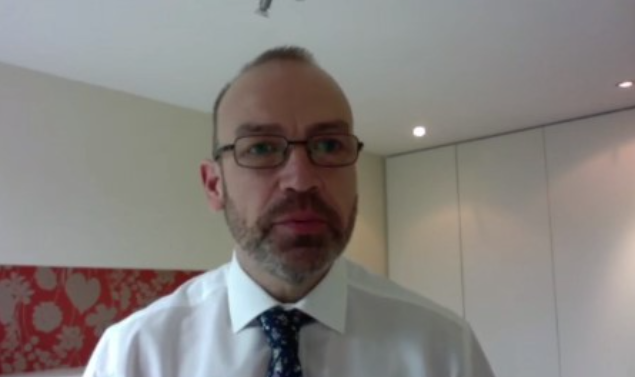
First, however, the Minister set out what the new lockdown would mean for the UK, saying it would be another difficult period for the country and the rail industry. He said that the UK Government backed the sector, and had worked to provide support with the EMAs and ERMAs over the past six months.
Conference Presenter Paul Clifton asked the Minister about the prospect of continued financial support from HM Treasury. He said: “We need to look forward and tackle the vast challenges of the last three decades”, adding that we need to move faster. Project Speed and the DfT Acceleration Unit would help the UK to build more efficiently and at pace, he added.
Notably the Minister highlighted the importance of electrification for decarbonising and improving the rail network, saying “electrification fits very nicely with Government’s green agenda”, alongside investment in hydrogen and battery technology. The Minister further praised the industry for building the skills needed to deliver these types of projects, and claimed Government has “massive ambition” for decarbonising the rail network.
The View from the Opposition
Shadow Transport Secretary Jim McMahon MP, who only took up the transport brief in April this year, gave the view of HM’s opposition.
His speech and the subsequent discussion covered a whole range of areas, including giving his full backing to HS2 and urging the Government to publish a long-term transport plan with fair funding for every region.
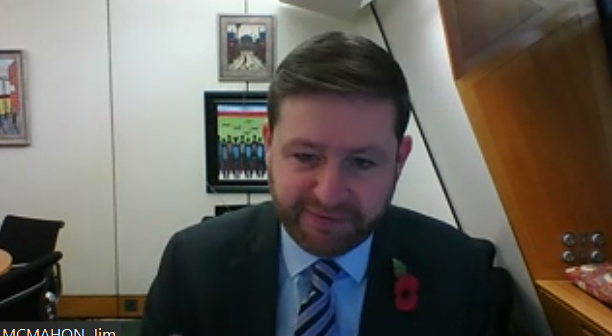
When it came to Labour’s policy on renationalisation, McMahon said the Party still wanted to take rail into public ownership, but said there was a place for the private sector. “There are roles for private companies in current public transport systems in the UK” he said, adding that the UK needs to have public and private companies working together but with local decision making.
And he said Labour would set out their plans on rail in further depth within the next few years, so that these policies can include the impact of the Williams Rail Review and look to a post-Coronavirus environment. He concluded with a comment on diversity, saying transport leaders need to reflect the communities they serve and that the rail industry needs to offer an attractive career path to young people.
Breakout sessions
The lunch break once again offered the opportunity to relax and network with RIA’s key partner organisations. The Conference live streamed a session with TV personality Ruby Wax from Rail Wellbeing LIVE and also offered attendees the chance to hear from Network Rail on their Open for Business programme, to bring contestability into the rail network, and from the National Railway Museum on their new Wonderlab project.

World-class delivery
The Chief Executive of the Infrastructure Projects Authority (IPA) Nick Smallwood was the next guest to visit RIA’s virtual stage.
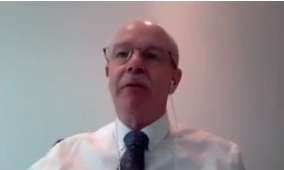
Smallwood gave a frank presentation, saying that whilst infrastructure was high up the Government’s agenda, he did not feel the UK was delivering to the best of its ability. “I don’t see leading-edge technology being used on building railways”, he said.
When it came to delivering major projects, Smallwood said there were a few fundamentals that project leaders needed to get right – for example, team behaviours, the quality of cost-estimates, front end loading and being curious of value management.
When asked about other sectors, Smallwood said that Highways England was seen as a good delivery body, although was not as good as rail at communicating its work. He was clear that the industry needed to “to modernise, shape up and become more diverse”, but also said the IPA and Government were keen to work with suppliers and that the private sector had key learnings in efficiency it could bring to the table.
Delivering excellence
The first panel session of the day saw a discussion on ‘Delivering Project Excellence’, chaired by Costain’s Managing Director of Transportation Sue Kershaw. Our panellists included; Crossrail’s Mark Wild, Network Rail’s Stuart Calvert, Transport for the North’s David Hughes and CECA’s Alasdair Reisner.
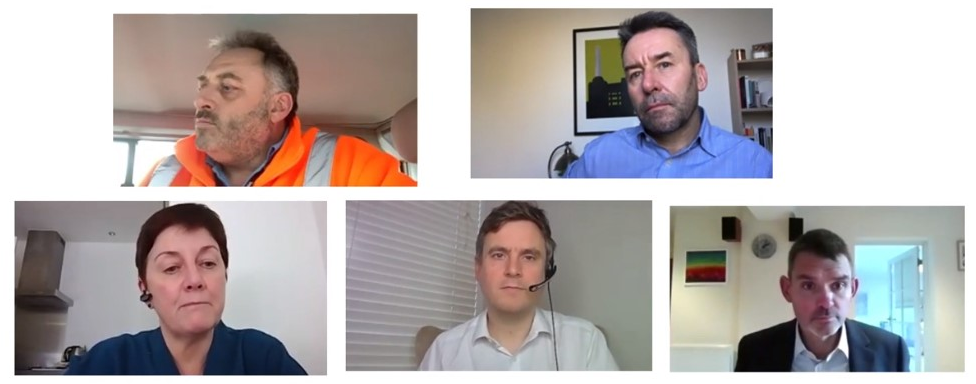
The session covered a range of issues around why rail has had supposedly a poor reputation for delivering projects to deadline and on budget in the past, and how it could improve it.
The session began with a strong warning from Sue Kershaw against using the term ‘World Class’ in describing any project, saying she often felt many projects did not deserve the title. Mark Wild added that the key for any major project is to design “the minimal viable product and to build out from there”. Stuart Calvert further emphasised that for the supply chain the key to improving delivery is to “be driven by the need and be driven by the customer.”
On issues for future projects, TfN’s David Hughes warned there is a risk the industry and Government over-corrects itself. Crossrail’s Mark Wild added that that the UK is “way off the pace” with skills, and often core skills leave the country after projects finish. He further added that the political pressure to start work early is a key thing to avoid for a major project and was a critical mistake with Crossrail.
The panel saw the first speaker so far to join in PPE, as Stuart Calvert joined live from site!
Building Back Better
The next panel session was on Build Back Better. Compere Paul Clifton was joined by John Larkinson of ORR, Rob McIntosh of Network Rail Eastern Region, Nick Bisson from the Department for Transport, Russell Jackson of AECOM and Jo Moffatt of Atkins.
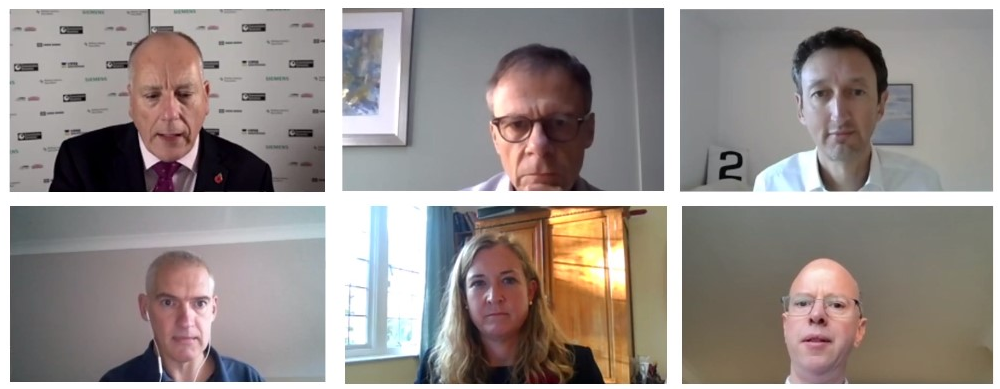
Russell Jackson began by saying the industry need to put outcomes first, whether that is passenger’s interests, creating jobs or the economy. He said the industry needed to be more collaborative and have a one-team approach, which he said was “very much a culture change”. Nick Bisson agreed, saying this was something the Department were keen to work with the industry on.
Clifton asked whether the new Acceleration Unit set up at DfT will make a difference. Network Rail’s Rob McIntosh was clear that it would, saying it will be a great opportunity to make projects easier to get sign off for, but that rail needs to address some of its own issues to make projects faster too. John Larkinson agreed, telling the audience that unless rail can convince HM Treasury it can sort out some of its problems, there won’t be more money.
Jo Moffatt was clear that delivering more effectively also meant ensuring your organisation was sharing best practice and driving diversity and inclusion in its teams. “Behaviours matter more than process”, she concluded.
Part of British life
The final session of the day was a ‘fireside chat’ with Network Rail Chairman Sir Peter Hendy OBE. During a fascinating and candid discussion, Sir Peter set out a positive future vision for the UK’s railways.
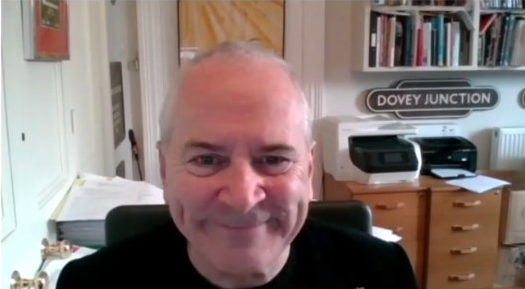
The conversation began with the Union Connectivity Review which he is leading and on which he said there is still lots to do to connect the transport systems of the different countries in the UK. He added that it’ll be “an interesting challenge” and “not without its political overtones”, although stressed that he hopes it’ll make a positive contribution to the UK economy.
On decarbonisation he was unequivocal. If we are going to build back better, there is a strong case for a continuous programme of electrification and as he described, a “thirst” in Government for deliverable clean transport enhancements.
Turning to Williams, he stated that the Review will undoubtedly set out a better plan for running the UK’s railways and will be hugely important for the future of the network.
On the challenges for Transport for London, Sir Peter was clear that the Commissioner Andy Byford is the right man for the job and the funding settlement he reached with Downing Street is “not bad”, although he admitted that the settlement is likely to make the delivery of Crossrail 2 harder.
Saving his best until last, Sir Peter ended in style by showing us his station sign from Dovey Junction, before adding: “The railway is part of British life.”


